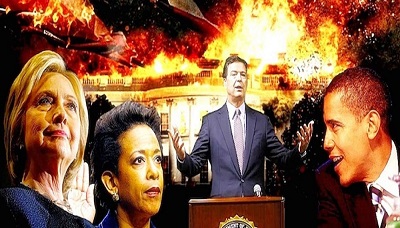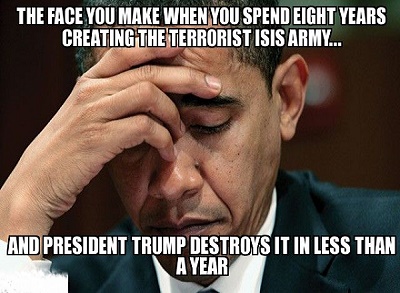After government shutdown, maybe politicians will find they are ‘non-essential’
The most critical functions of government will continue and so will the non-essential bickering.

Cable networks covering the last-ditch Senate attempt to avoid a government shutdown Friday night showed scary looking clocks counting down the seconds until midnight. And then, midnight came. The government shut down. Speeches were made. OK now what?
We will see the usual grandstanding of course, the usual hyperbole. Maybe Senator Cory Booker will cry tears of rage again.
But “shutdown” is a misnomer because the most critical functions of government will continue. Social Security payments will be made. The Defense Department will keep defending us, though pay will be delayed. Even Robert Mueller’s Russian witch huntwill keep grinding away. It’s not like the United States will instantly turn into Venezuela.
The fact that this is happening over a weekend mitigates the immediate impact. Negotiations can continue and the government may be back open by Monday. White House Office of Management and Budget Director Mick Mulvaney seemed to think this would happen.
More from Robbins: Stop trying to diagnose our ‘very stable genius’ president. He might be right.
Iran unrest threatens Tehran’s tyrants. Can protesters drive them out?
If not, non-excepted Federal workers will stay home. Non-excepted workers were previously known as non-essential, but that expression was done away with because it raised the obvious question, if they are non-essential why do they have jobs in the first place? It’s still a good question.
Shutdowns are high drama but essentially low impact. The biggest outcome of the 1995-96 shutdown had nothing to do with the federal budget. When most of the paid White House staff were furloughed, the Clinton team used unpaid interns temporarily to fill in. This is how Monica Lewinski entered American history, when a pizza delivery turned into a sexual encounter.
 During the 2013 shutdown, President Obama went out of his way to amplify the effect on regular people by closing off every monument on the National Mall. He even erected barricades around the open-air, privately maintained World War Two memorial, which cost more than doing nothing. But this backfired when elderly veterans on the Mississippi Gulf Coast Honor Flight showed up, and, along with other veterans, took the barricades down. Some marched sections of fence a few blocks to the White House perimeter and stacked them up. Former Marine staff sergeant Joey Jones took down one segment even having lost both legs in Afghanistan, and his picture started trending on Twitter. It was the definition of bad optics.
During the 2013 shutdown, President Obama went out of his way to amplify the effect on regular people by closing off every monument on the National Mall. He even erected barricades around the open-air, privately maintained World War Two memorial, which cost more than doing nothing. But this backfired when elderly veterans on the Mississippi Gulf Coast Honor Flight showed up, and, along with other veterans, took the barricades down. Some marched sections of fence a few blocks to the White House perimeter and stacked them up. Former Marine staff sergeant Joey Jones took down one segment even having lost both legs in Afghanistan, and his picture started trending on Twitter. It was the definition of bad optics.
This government shutdown differs from previous ones because the direct cause of the impasse has nothing to do with the budget. Democrats are attempting to use the process to force a decision on the Obama-era Deferred Action for Childhood Arrivals (DACA) policy that affects 800,000 immigrants. Polls show majority support for resolving DACA as a standalone issue. However, a CNN poll released Friday showed that a majority of Americans think that keeping the government open is more important than fixing DACA by 56% to 34%. The poll also showed blame for the shutdown somewhat evenly distributed between Democrats in Congress (31%), Republicans in Congress (26%) and President Trump (21%). Ten percent blame all three.
 Linking a non-budget issue to force a shutdown shows how dysfunctional the system has become. And since the deadline to resolve DACA is not until March, there is no pressing reason to force a crisis over it now. “We believe strongly in immigration reform,” New York Democratic Senator Chuck Schumer said. “We could say, ‘We’re shutting down the government, we’re not gonna raise the debt ceiling, until you pass immigration reform.’ It would be governmental chaos.” But that was Schumer in 2013. In 2018, he has decided that governmental chaos is just fine, which supports the White House argument that this is the “Schumer shutdown.”
Linking a non-budget issue to force a shutdown shows how dysfunctional the system has become. And since the deadline to resolve DACA is not until March, there is no pressing reason to force a crisis over it now. “We believe strongly in immigration reform,” New York Democratic Senator Chuck Schumer said. “We could say, ‘We’re shutting down the government, we’re not gonna raise the debt ceiling, until you pass immigration reform.’ It would be governmental chaos.” But that was Schumer in 2013. In 2018, he has decided that governmental chaos is just fine, which supports the White House argument that this is the “Schumer shutdown.”
Whoever ultimately gets blamed, the larger issue is the “budgeting by crisis” that has become the norm in Washington. It has been years since the Senate has been able to budget under regular order. Instead, Senators use the reconciliation processes to duck filibusters, and continuing resolutions to kick the fiscal can down the road. And when budgets do somehow get passed, they show no evidence of a sense of fiscal responsibility and restraint. In January 2009 the public debt was $10.6 trillion. By December 2017 it had almost doubled to $20.5 Trillion. This unsustainable addiction to debt is the long-term problem, and a direct consequence of irresponsible politics. A government shutdown might help our elected officials focus on fixing the broken system before voters decide that they are non-essential and tell them to stay home.



